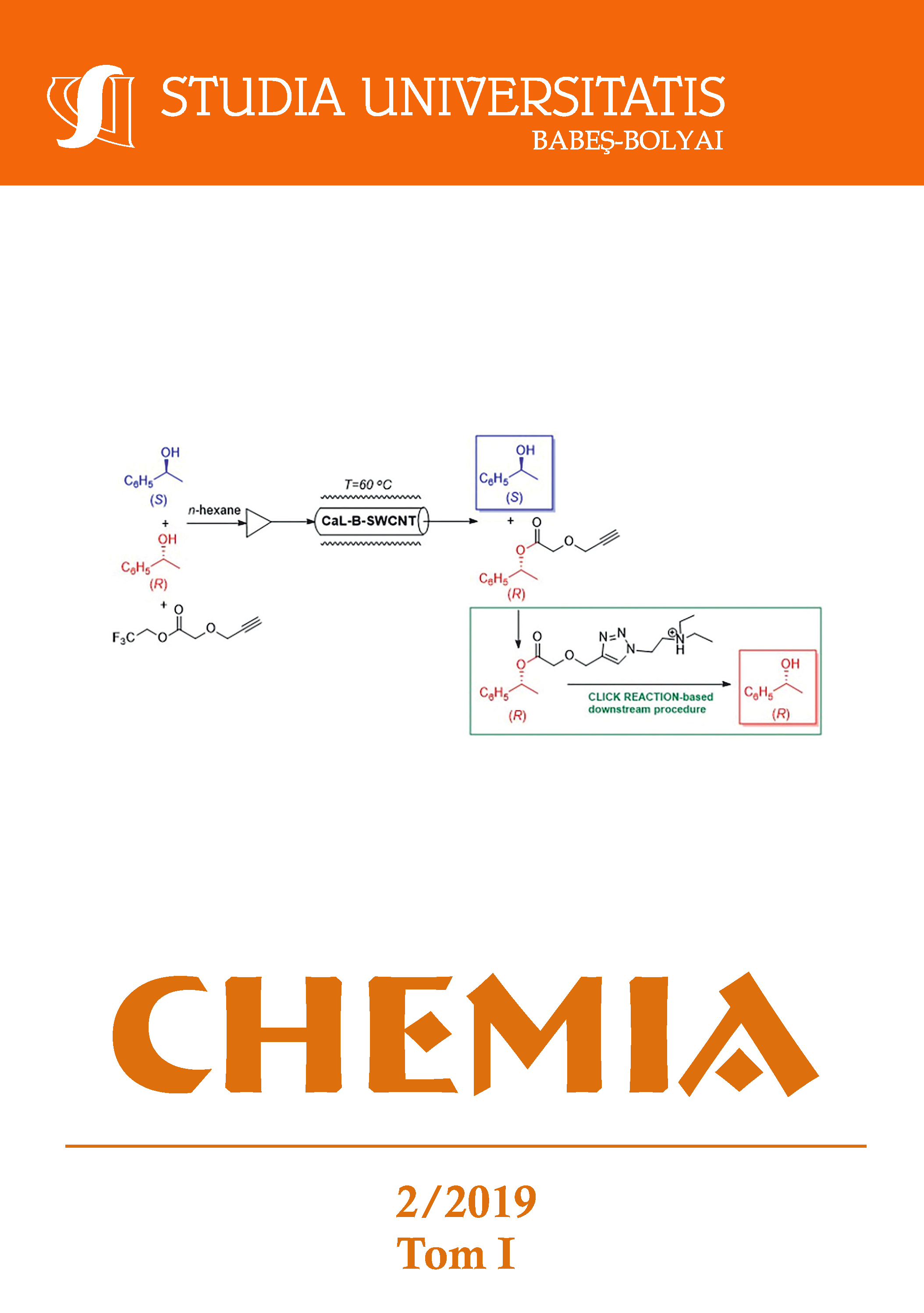MODELING THE L(+) LACTIC ACID PRODUCTION VIA R. ORYZAE NRRL 395 FERMENTATION ON BIODIESEL CRUDE GLYCEROL
DOI:
https://doi.org/10.24193/subbchem.2019.2.01Keywords:
biodiesel; crude glycerol; process optimization, mathematical model, fractional order modelAbstract
Similar to the petroleum industry, biodiesel industry generates unwanted by-products. Biodiesel production generate huge amount of crude glycerol - one part of glycerol is produced at every ten parts of biodiesel, and has a negative influence on the biodiesel price. A solution to reduce the negative environmental problems and the cost of biodiesel is to use crude glycerol as carbon source for microbial growth media in order to produce valuable organic chemicals. Recently, the research group from University of Agricultural Sciences and Veterinary Medicine Cluj-Napoca developed sustainable opportunities for L (+) lactic acid production via R. oryzae NRRL 395 fermentation on biodiesel crude glycerol. The current research aims at improving the production of L-lactic acid using crude glycerol as substrate, immobilized spores and inhibited alcohol dehydrogenase of R. oryzae in discontinuous and semi continuous fermentation processes in order to make the process more efficient. According to several experimental dataset under different process parameters, multiple regression methods were employed to establish mathematical models for prediction of the L lactic acid production. Determination coefficient values states that predicted values were in good agreement with the experimental values. Introducing the fractional order in models lead to a good phenomenological description. The resulted models can be used both in optimization process and prediction instead of time and resource consuming experiments.
References
A. Drozdzynska, K. Leja, K. Czaczyk, J Biotechnol Comp Bio Bionanotechnol., 2011, 92, 92.
R. Dobson, V. Gray, K. Rumbold, J Ind Microbiol Biotechnol., 2012, 39, 217.
D.M. Rossi, J.B. da Costa, E.A. de Souza, M.C.R. Perelba., M.A.Z. Ayub, Renew Energ, 2012, 39, 223.
A. Kosmider, A. Drozdzynska, K. Blaszka, K. Leja, K. Czaczyk, Pol J Environ Stud., 2010, 19, 1249.
F. Yang, M.A. Hanna, R. Sun,Biotechnol Biofuel., 2012, 5(13), 1.
K. Xu, P. Xu, Bioresour Technol., 2014, 153, 23.
M.A. Abdel-Rahman, Y.Tashiro, K. Sonomoto, Biotechnol Adv., 2013, 31, 877.
Y. Wang, Y. Tashiro, K. Sonomoto, J Biosci Bioeng, 2014, available online.
D.C. Vodnar, F.V. Dulf, O.L. Pop, C. Socaciu, Microb Cell Fact., 2013, 12, 92.
D.C. Vodnar, L.F. Calinoiu, F.V. Dulf, B.E. Stefanescu, G. Crisan, C. Socaciu, Food Chemistry, 2017, 231, 131.
D. Olive, “Linear Regression”, Springer Verlag, 2017.
B.R. Darlington, A.F. Hayes, “Regression Analysis and Linear Models Concepts, Applications, and Implementation”, The Guilford Press, 2016.
J.A.T Machado;V. Kiryakova, F. Mainardi, Communications in Nonlinear Science and Numerical Simulation, 2011, 16(3), 1140.
C.A. Monje, Y.Q.Chen, B.M. Vinagre, D. Xue, V. Feliu, “Fractional-order Systems and Controls”, Springer Verlag, 2010, chapter 4.
E.H Dulf, F.V. Dulf, C.I. Pop, Chemical Engineering Communication, 2015, 202(12),1600.
E.H. Dulf, C.I. Muresan, M.L. Unguresan, Journal of Mathematical Chemistry, 2014, 52(1), 115.
Downloads
Published
How to Cite
Issue
Section
License
Copyright (c) 2019 Studia Universitatis Babeș-Bolyai Chemia

This work is licensed under a Creative Commons Attribution-NonCommercial-NoDerivatives 4.0 International License.



